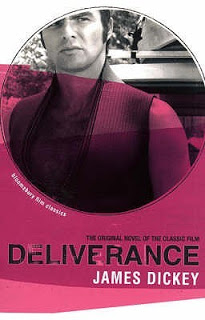
There is always something wrong with people in the country, I thought. In the comparatively few times I had ever been in the rural South I had been struck by the number of missing fingers. Offhand, I had counted around twenty, at least. There had also been several people with some form of crippling or twisting illness, and some blind or one-eyed. No adequate medical treatment maybe. But there was something else. You’d think that farming was a healthy life, with fresh air and fresh food and plenty of exercise, but I never saw a farmer who didn’t have something wrong with him, and most of the time obviously wrong.The catching of an arm in a tractor park somewhere off in the middle of a field where nothing happened but that the sun blazed back more fiercely down the open mouth of one’s screams.
He is right to be concerned. I won’t give too much away, but SPOILER ALERT suffice to say that someone gets anally raped. Or ‘corn holed,’ as the author calls it. It’s curiously dated; because the victim is male, there is a strong subtext that he ought to be ashamed, which seems very wrong to a contemporary reader. Also dated, but more hilariously, is the discussion of some old bottles they see in the river:
‘Plastic,’ he said, ‘doesn’t decompose.’
‘Does that mean you can’t get rid of it,’ I said, ‘at all?’
‘That’s all anybody has got. It depends on how strong your fantasy is, and whether you really – really – in your own mind, fit into your own fantasy, whether you measure up to what you’ve fantasized.’
The book is I guess a twisty scary thriller, but it is also somehow something bigger than that. I am not quite sure how Dickey manages it, but in the midst of white water and shotguns and rape he manages to make this story about that – about who you are at the most basic level, and how quickly you can go there if you need to. I recommend it.
